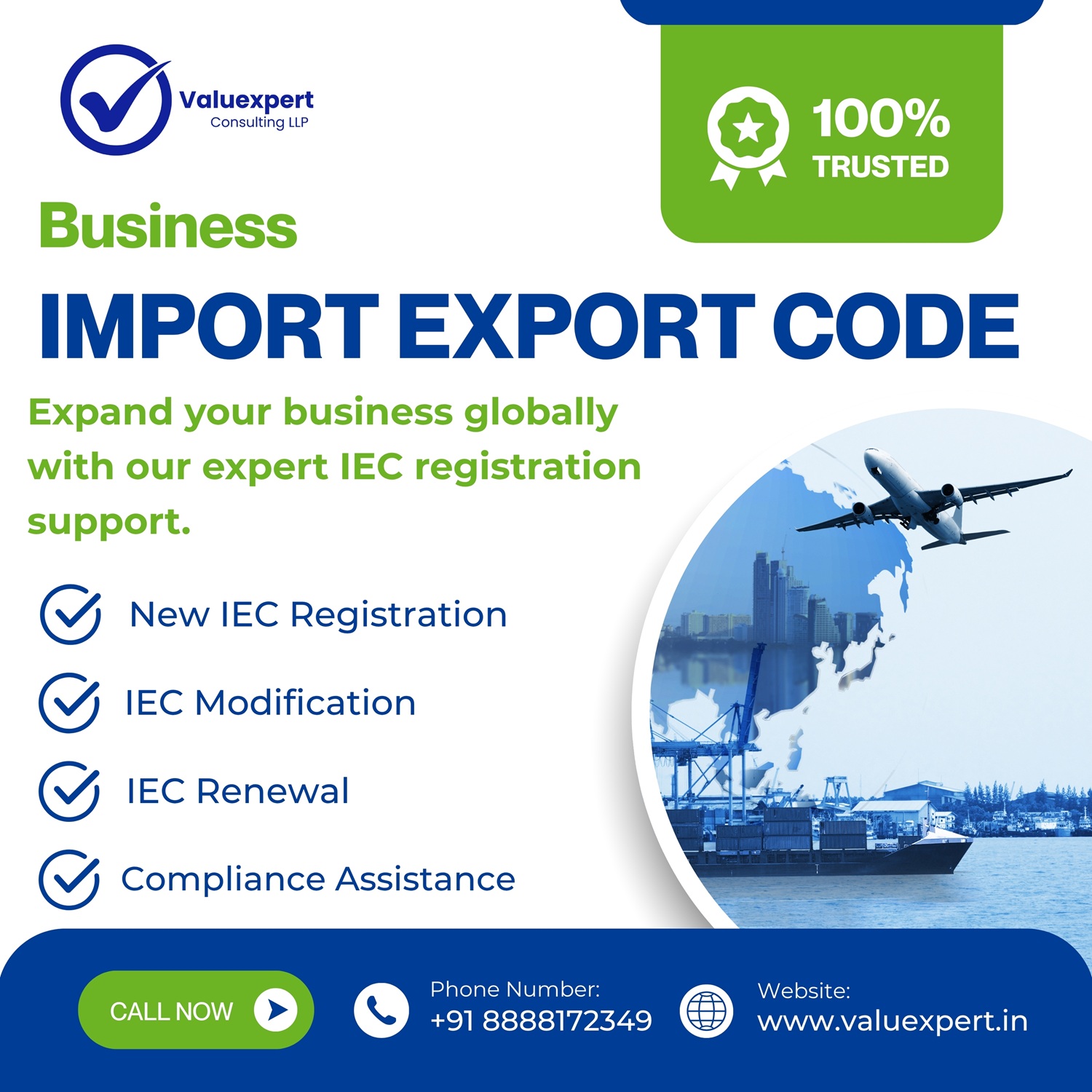Import Export Code

Import Export Code
Introduction:
The individuals or companies dealing in the business of Import and Export of goods and services are required to obtain Import Export Code (10-Digit Code) registration in India.
IEC is issued by the ‘Director-General of Foreign Trade (DGFT). It is valid for a Lifetime.
Predominantly, importers, merchants cannot import goods without the Import Export Code, and similarly, the exporter merchant cannot avail benefits from DGFT for the export scheme, etc.
Benefits of Import Export Code:
a) Easy Processing:
It is fairly easy to obtain an IEC code from the DGFT, after submitting the application we get instantly IEC Certificate.
b) Availing Several Benefits:
IEC Registration provides certain benefits to the individuals and companies who have obtained an Import Export Code for their business from DGFT. Adding to that, companies can also claim the refund of taxes paid while exporting the goods.
c) Expansion of Business:
IEC registration is required for import and export business; it allows the individual to capture the international market, which, as a result, enhances the business standard and takes it forward.
d) Validity of the IEC registration:
The validity of IEC registration is for a lifetime and remains with the business owner until the existence of the business.
Documents required for registration of IEC:
For IEC Code Registration following documents are required:
IEC Registration Steps:
Step 1: Application Form
We need to prepare an online application on the DGFT website.
Step 02: Documents:
Along with the online application, we will be to submit documents such as your PAN Card/ Along with the Online application, we will be to submit documents such as your PAN Card \ Passport \ Aadhar Card, etc. your proof of address Aadhar Card\Voter ID\Passport, along with your bank details.
Step 3: Filing Application
Once we complete your application form, we need to submit your application on the DGFT website by using a DSC or Aadhar OTP & pay the necessary fee to register for the IEC.
Step 4: IEC Code
Once your application has been submitted, We will receive a soft copy of the IEC Code from the government.
Categories Entity Exempted from obtaining IEC:
a) Importers who are covered by clause 3(1) [except sub-clauses (e) and (l)] and exporters who are covered by clause 3(2) [except sub-clauses (i) and (k)] of the Foreign Trade (Exemption from application of Rules in certain cases) Order, 1993.
b) Ministries or Departments of the State or Central Government.
c) Persons or entity is importing or exporting goods for personal use not connected with trade or manufacture or agriculture.
d) Persons importing/exporting goods from and to Nepal provided that the CIF value of a single consignment does not exceed Rs. 25,000.
e) Persons importing/exporting goods from/to Myanmar through Indo-Myanmar border areas provided that the CIF value of a single consignment does not exceed Rs. 25,000.
Renewal of an IEC Registration:
This has been recently updated by the DGFT that every IEC holder will require to ensure that the details of his/her Import Export code need to be updated electronically every year during April to June.
Even when there are no changes during a year, the same needs to be confirmed online every year
An IEC shall be de-activated, if it is not updated within the specific time. An IEC therefore de-activated may be initiated, on its successful up-gradation. This would be without detriment to any other action carried for violation of any other provisions of the FTP.
